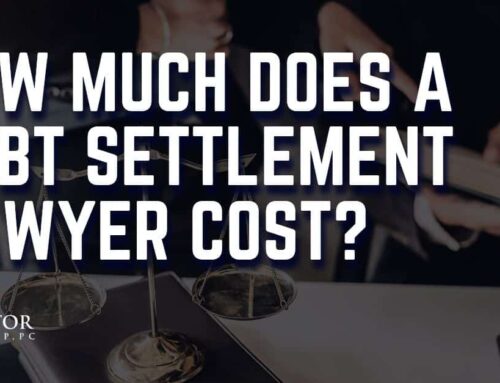FINAL NOTICE!
Have you ever received a letter like this in the mail that lets you know that you are being sued by a debt collector? What can you do? And what if the information doesn’t add up and the person they are suing isn’t you? Here are some things you should have in mind when being sued by a debt collector.
Why may you get sued by a debt collector? This may happen if you have an old, unpaid medical, credit card, or other consumer debt. If you don’t respond in time or attend the court hearing, the creditor is likely to win — and may get the right to take part of your wages or bank account. A debt collection lawsuit begins when a creditor files a complaint with a state civil court listing you as a defendant, along with your co-signer if you have one. The complaint will say why the creditor is issuing you and what it wants. Typically, that’s the money you owe plus interest, and maybe attorney fees and court costs. Typically, they will send a copy of the complaint and a court summons. The summons has information about when and how you can file a formal response in court and the date of your court hearing. Getting one of these letters in the mail can be scary and even make you feel anxious, not knowing what to do next. But, don’t worry, you can always respond in these cases. How?
Always review your own records and any information you got in the mail, including the validation letter that the debt collectors must send. Have in mind these tips:
- Take a close look at the amount. The amount may sometimes be inaccurate or can be addressed to the wrong person (someone with your exact name).
- The debt can be past the statute of limitations. Once that passes, the debt is considered “time-barred.” That means you can’t legally be sued — but collectors may still try it, in violation of your consumer rights.
- You may have already paid the debt, meaning the complaint is faulty.
If you’re being sued for debt and you disagree with any or all of the information we have seen above, you will want to file a response to the lawsuit in court. You will then have the opportunity to contest what’s in the lawsuit or ask the court to dismiss it altogether. Now, what happens if the debt is legitimate?
- Hire a lawyer: If you accepted a judgment and you’re wondering how to win a debt collection lawsuit, your best bet is consulting a debt collection attorney. Most consumer law attorneys will offer a free consultation in which they’ll discuss your options with you.
- Settling the debt: You can try to negotiate a settlementin exchange for having the lawsuit dropped. Threatening to file for bankruptcy can also help if you decide to settle. This doesn’t mean you have to actually file bankruptcy, but qualifying for bankruptcy can help with a settlement negotiation.
My debt collector is suing me. What do I do? Review
Credit card debt settlement has become a solution for thousands of people across the country and, when managed properly, can result in significant savings. We here at The Mediator Law Group help Americans solve their financial problems and regain their financial freedom with our Debt Resolution Program.







